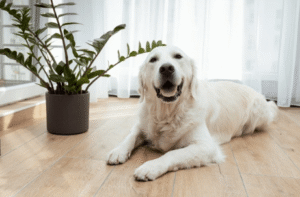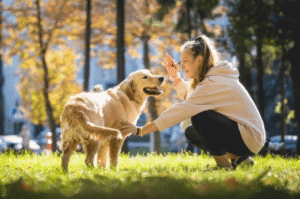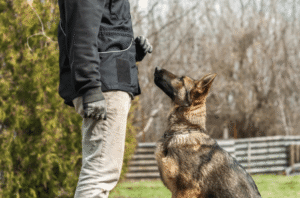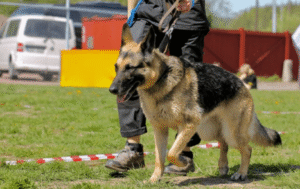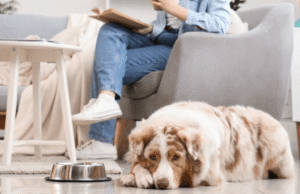
If you’ve just brought a new puppy home in Boise, proper boise puppy potty training is one of the first—and most important—steps you’ll take. Getting this right helps your pup learn good habits early. It also keeps your home clean and makes everyday life easier for you and your dog.
Why Boise Puppy Potty Training Is So Important
-
Potty training helps your puppy understand where and when it’s acceptable to go outside. That builds good lifelong habits. Learn more at AKC
-
Without structure, puppies may potty indoors repeatedly, which can lead to frustration for you and confusion for them. Routine and consistency set everyone up for success.
Key Steps for Boise Puppy Potty Training Success
Create a Routine for Puppy Toilet Training in Boise
-
Take your puppy out first thing in the morning, after meals, after naps, after playtime, and before bedtime.
-
Young puppies often need frequent potty breaks — sometimes every 1–2 hours.
Use a Consistent Potty Spot for Housebreaking
-
Choose a spot outdoors (or inside with pee‑pads if needed). Always bring your pup to the same place. The familiar smells and surroundings help them learn what that spot is for.
Reward Good Behavior During Boise Puppy Potty Training
-
When your puppy eliminates in the right place, offer praise, petting, or a treat. Rewarding immediately helps them understand the desired behavior.
-
Avoid scolding or punishing accidents — that can create fear or confusion.
Watch for Potty Signals While Housebreaking Your Puppy
-
Puppies often show signs before needing to go: sniffing around, circling, whining or pacing. When you see these, act quickly.
-
When you can’t supervise, use a crate or confined spot. Dogs naturally avoid soiling their sleeping or resting area — that instinct helps with training.
Clean Accidents Properly During the Potty Training Process
-
Accidents will happen. Use a pet-safe enzymatic cleaner to remove odors so puppies aren’t drawn back to the same spot.
-
Stay calm. Never punish — treat accidents as learning opportunities, not failures.
Be Consistent and Patient While You Potty Train Your Puppy
-
Every pup learns at their own pace. Consistency, patience, and persistence pay off.
-
With steady effort, many puppies are reliably house‑trained by 4–6 months old.
Common Housebreaking Challenges for Boise Puppies
-
Puppy has accidents when unsupervised → Limit freedom; crate or confine until reliable.
-
Puppy sniffs and circles but doesn’t go when outside → Stay calm, keep them on leash, wait a few more minutes. If nothing, try again soon.
-
Using pads but want outdoor training later → Phase out pads gradually while reinforcing outdoor potty with praise.
Extra Tips for Boise Puppy Potty Training Success
-
Keep toileting times tied to routine — for example, set phone reminders for potty breaks.
-
Use the same cue phrase, like “go potty” or “outside,” each time. Consistency helps pups learn faster.
-
If you travel or leave pup alone, plan for potty breaks (dog walker, puppy pads, or confinement).
Final Thoughts on Potty Training a Puppy in Boise
Boise puppy potty training doesn’t have to be messy or frustrating. With a solid routine, a designated potty spot, lots of positive reinforcement, and some clear boundaries — you’ll have a well‑house‑trained pup before you know it. Stay patient, stay consistent, and celebrate each small win.
Need extra support with housebreaking your puppy? Our Board & Train program is a great way to fast-track results. Or Contact Us to talk with a Boise trainer today.
FAQs
Q: When should I start potty training my puppy?
A: You can begin as soon as you bring your puppy home. Early habits—feeding, bathroom breaks, and supervision—lay the groundwork for success.
Q: How often should I take my puppy outside for potty?
A: Take them out first thing in the morning, after meals, after naps or play, and before bedtime. Young puppies may need several trips a day.
Q: What if my puppy has an accident indoors?
A: Clean it thoroughly with a pet‑safe enzymatic cleaner to remove odors. Avoid scolding. Instead, refocus on the routine and reward successes outside.
Q: Can crate training help with potty training?
A: Yes — most puppies avoid soiling their sleeping area. A properly sized crate helps teach bladder control when you can’t supervise directly.
Q: My puppy still has accidents weeks in — what can I do?
A: Check your schedule and consistency. Consider limiting access when unsupervised, using a crate, and strengthening positive reinforcement. If needed, Contact Us to speak with a local trainer.



